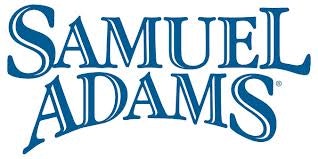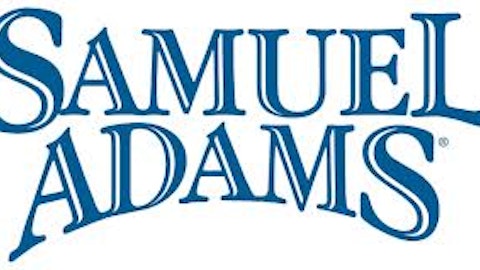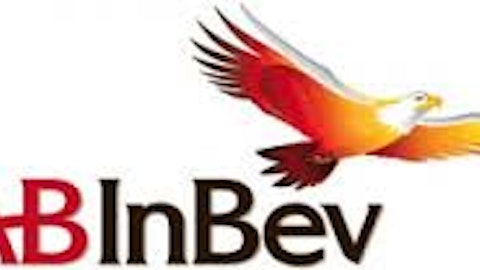Consider this recently overheard conversation among fellow investors:
“How much more can Boston Beer Co Inc (NYSE:SAM) grow and still be considered a craft beer? A lot of people I know who are beer connoisseurs don’t view it as craft beer anymore; as it continues to grow, it loses that craft beer appeal.”
“Yeah, I think Boston Beer Co Inc (NYSE:SAM) is overlooked by beer snobs. Shouldn’t it be? In places like Seattle, Portland and Boise that have plenty of micro-brews, Boston Beer is not going to be “cool” with the craft beer crowd.”
This is a common misconception that arises regarding Boston Beer Co Inc (NYSE:SAM), home of Samuel Adams Boston Lager. If Boston Beer is snubbed by the beer snobs, how can it continue to grow from here? How can it continue to prosper with the ever-growing number of micro-brews and continued competition from other craft brewers? I believe it can. I also believe many investors are missing the 800-pound gorilla in the room.

Great taste
First, what is craft beer? The Brewer’s Association, the trade group for craft beers lists the following three requirements to be considered a craft beer: first, they must be small, having annual production of 6 million barrels or less; second, they must be independent; and they must be traditional, having an all-malt flagship.
It is interesting to note that the Brewers Association voted in 2011 to increase the ceiling for craft beer production from 2 million barrels to 6 million barrels annually. This change occurred just as Boston Beer Co Inc (NYSE:SAM) was set to surpass the previous 2 million barrel mark.
Indeed, even the legislature seems poised to embrace the growth of the craft beer industry and follow the lead of the Brewer’s Association. The Small Brewer Reinvestment and Expanding Workforce Act of 2013, or Small BREW Act, would reduce the excise tax on beer for craft brewers by increasing the qualifying maximum barrel production from 2 million barrels annually to 6 million. This threshold supports the Brewers Association’s criteria.
Even with the trade association’s blessing and the legislature following suit, the question remains: Has Boston Beer Co Inc (NYSE:SAM) gotten too big? Won’t it be shunned by the beer snobs and connoisseurs? Can it continue to grow from here?
I would submit that Boston Beer Co Inc (NYSE:SAM)’s principal avenue for growth is not at the expense of other craft beers and micro-brews: it is by taking market share away from big beer.
Less filling
Consider these statistics: Overall beer sales in the U.S. were up .9% by volume in 2012. At the same time, growth in the craft brewing industry was 15% by volume. With overall sales and craft beer sales up, who saw sales declines?
Currently 90% of the domestic beer market is controlled by two industry behemoths: Anheuser-Busch InBev NV (ADR) (NYSE:BUD) and MillerCoors, a joint venture between Molson Coors Brewing Company (NYSE:TAP) and SABMiller.



